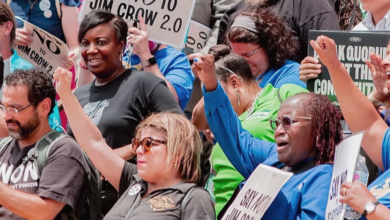How to Handle Real Estate Disputes in Georgia, USA
Real estate disputes in Georgia. Learn how to resolve property conflicts, from mediation to litigation, with expert legal guidance. Protect your rights.

Real estate disputes in Georgia, USA can be complex and stressful, often involving significant financial and emotional stakes. Whether you’re a homeowner, buyer, seller, landlord, or tenant, disagreements over property boundaries, contracts, titles, or leases can quickly escalate if not handled properly. Understanding the common causes of these Real Estate Disputes and the legal remedies available under Georgia law is essential to protecting your rights and achieving a fair resolution.
Navigating real estate disputes in Georgia, USA requires knowledge of state-specific laws and dispute resolution methods. From mediation and arbitration to litigation, the right approach depends on the nature of the conflict. This guide will explore the most frequent types of disputes, legal options for resolution, and practical steps to minimize risks. By staying informed and proactive, you can avoid prolonged legal battles and secure a favorable outcome in your Real Estate Disputes matter.
How to Handle Real Estate Disputes in Georgia, USA
Boundary and Property Line Disputes
One of the most frequent real estate disputes in Georgia involves unclear property boundaries. These conflicts often arise when neighbors disagree over fence placements, tree encroachments, or land use. A property survey is essential to determine accurate boundaries. If a resolution isn’t reached amicably, legal action may be necessary under Georgia’s quiet title laws, which help clarify ownership.
Breach of Contract in Real Estate Transactions
A breach of contract occurs when one party fails to fulfill their obligations in a purchase agreement, lease, or sale contract. Common issues include failure to disclose defects, backing out of a deal without cause, or misrepresenting property conditions. Georgia courts enforce real estate contracts strictly, and remedies may include specific performance, monetary damages, or contract termination.
Title and Ownership Disputes
Title disputes can emerge due to liens, inheritance claims, or fraudulent transfers. A title search helps uncover any encumbrances before purchasing property. If a dispute arises, Georgia law allows for quiet title actions to resolve conflicting ownership claims. Title insurance can also protect buyers from unforeseen legal challenges.
Landlord-Tenant Conflicts
Disputes between landlords and tenants often involve unpaid rent, lease violations, or security deposit disagreements. Georgia’s Landlord-Tenant Act outlines the rights and responsibilities of both parties. Mediation or small claims court can resolve these issues without lengthy litigation.
Zoning and Land Use Disputes
Local government enforce zoning laws that dictate property usage. Disagreements may arise if a property owner violates zoning regulations or faces unfair restrictions. Challenging a zoning decision often requires filing an appeal with the local zoning board or pursuing legal action in court.
Legal Remedies for Real Estate Disputes in Georgia
Negotiation and Mediation
Before escalating to court, parties should attempt negotiation or mediation. A neutral mediator helps facilitate a mutually acceptable resolution, saving time and legal expenses. Many Georgia courts require mediation before allowing a lawsuit to proceed.
Arbitration
Some contracts include arbitration clauses, requiring disputes to be resolved by an arbitrator instead of a judge. Arbitration is faster and less formal than litigation but results in a binding decision.
Litigation in Georgia Courts
If other methods fail, filing a lawsuit may be necessary. Georgia’s superior courts handle most real estate disputes, while magistrate courts deal with smaller claims. Litigation can be costly and time-consuming, so it’s often a last resort.
Quiet Title Actions
When ownership is unclear, a quiet title lawsuit can legally establish rightful ownership. This is common in cases involving inheritance Real Estate Disputes or adverse possession claims.
Specific Performance and Damages
Courts may order specific performance, forcing a party to fulfill contractual obligations (e.g., completing a sale). Alternatively, monetary damages compensate for financial losses caused by the dispute.
Steps to Resolve a Real Estate Dispute in Georgia
Identify the Nature of the Dispute
Understanding the specific type of conflict is crucial for determining the best resolution strategy. Common disputes include property line disagreements, contract breaches, title defects, landlord-tenant issues, and zoning violations. Properly classifying your dispute helps in selecting the appropriate legal remedies and documentation needed.
Gather All Relevant Documentation
Compile property deeds, contracts, inspection reports, communication records, and any other evidence related to the dispute. These documents serve as critical proof to support your claim or defense. Organizing paperwork early strengthens your position whether negotiating or pursuing legal action.
Attempt Negotiation or Mediation First
Before escalating to court, explore direct negotiation or professional mediation to reach a mutually acceptable solution. Many Georgia courts require mediation attempts for certain disputes, as it saves time and costs compared to litigation. A neutral mediator can facilitate productive discussions between parties.
Consult a Real Estate Attorney
Seek legal advice from an experienced Georgia real estate attorney to evaluate your case and rights. An attorney can help draft demand letters, review settlement options, and determine if litigation is necessary. Their expertise ensures you don’t overlook critical legal deadlines or procedures.
Consider Alternative Dispute Resolution (ADR)
If negotiations fail, arbitration or mediation through ADR programs can provide binding resolutions without full trials. Georgia courts often recommend ADR as it’s typically faster and less expensive than traditional litigation while still being legally enforceable.
File a Lawsuit if Necessary
When other methods fail, filing in Georgia Superior Court or Magistrate Court (for smaller claims) may be required. Your attorney will help prepare complaints, gather evidence, and navigate court processes. Be prepared for possible counterclaims or appeals from the opposing party.
Comply with Court Judgments
If the court rules in your favor, ensure all orders for damages, property transfers, or injunctions are properly executed. Failure to comply can result in penalties or additional legal action. Conversely, if you lose, consult your attorney about appeal options or settlement alternatives.
Prevent Future Disputes
After resolution, take preventive steps like updating property surveys, clarifying contracts, and maintaining thorough records. These measures reduce risks of recurring conflicts and provide stronger protection for future real estate transactions in Georgia.
Read More: How to Get Legal Guardianship in the UK: Family Law Process
Real estate disputes in Georgia, USA can be challenging, but with the right approach, they can be resolved efficiently and fairly. Whether you’re dealing with boundary disagreements, contract breaches, or landlord-tenant conflicts, understanding your legal rights and options is crucial. By exploring alternative dispute resolution methods like mediation or arbitration before pursuing litigation, you can often save time, money, and unnecessary stress while still protecting your interests.
When facing real estate disputes in Georgia, USA, seeking guidance from an experienced real estate attorney can make all the difference. A knowledgeable lawyer can help navigate complex laws, negotiate favorable settlements, and represent your case in court if needed. Taking proactive steps—such as thorough contract reviews, proper documentation, and early legal consultation—can prevent many disputes from escalating. With the right strategy, you can achieve a resolution that safeguards your property rights and financial well-being.
FAQs
What are the most common real estate disputes in Georgia?
The most frequent Real Estate Disputes involve property line disagreements, contract breaches, title issues, landlord-tenant conflicts, and zoning violations.
Can I settle a Real Estate Disputes without going to court?
Yes, many cases are resolved through mediation, arbitration, or direct negotiation before litigation becomes necessary.
How long does it take to resolve a Real Estate Disputes in Georgia?
Timelines vary, but simple mediation may take weeks, while complex litigation could last months or even years.
What is a “quiet title” action in Georgia?
It’s a lawsuit to establish clear ownership when there are competing claims or defects on a property’s title.
When should I hire a real estate attorney for a dispute?
Consult an attorney immediately if legal rights, large sums, or property ownership are at risk to protect your interests.











